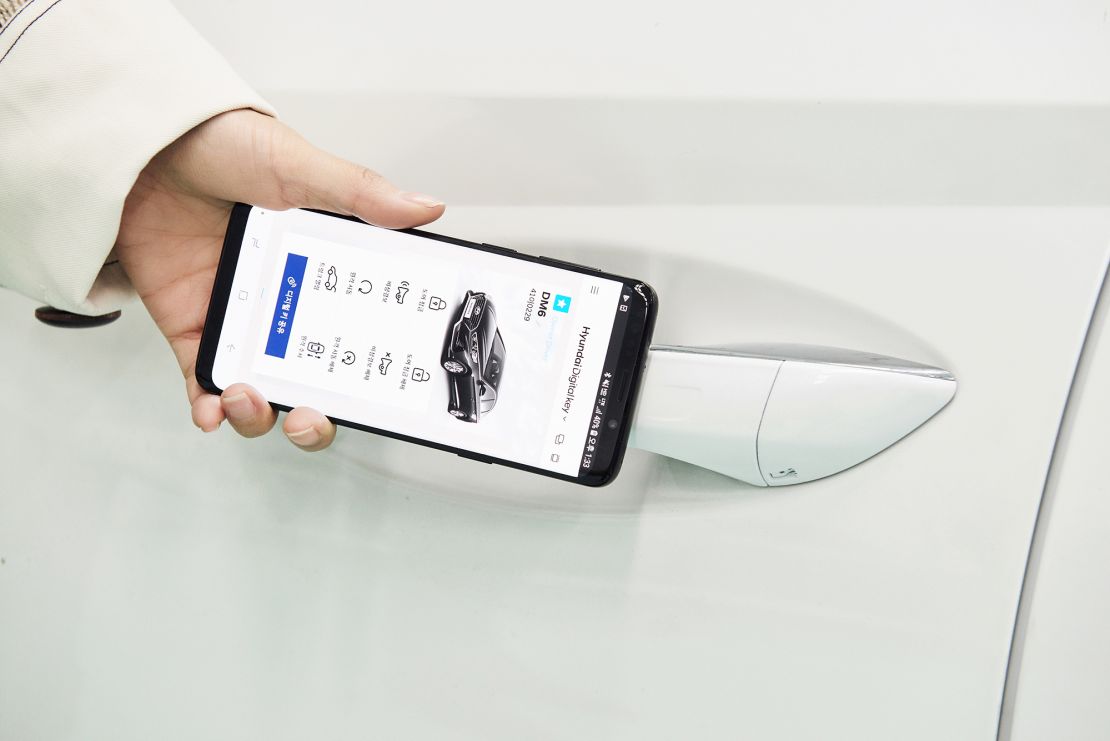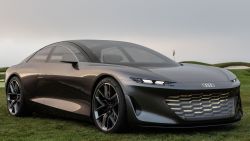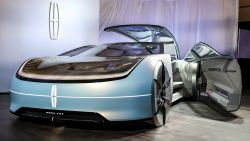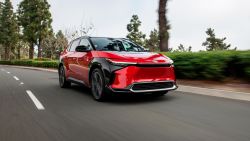Smartphones have largely replaced cameras, newspapers, books, and personal stereos. Next up: Car keys.
More from Success
Nowadays most cars don’t come with actual car keys anyway, just key fobs that let you get into your car and start the engine, often without having to take the fob out of your purse or pocket.
Some carmakers are taking this a step further by creating apps that do the same thing. With the app installed on your phone, you can get into the car and start the engine. It usually works by just being close to the car. But, in some cases, you have to hold the phone near the car door. There’s no need to open an app or press anything – it should work even if the phone is locked.
But such apps haven’t gone mainstream yet. Only a handful of carmakers offer the technology and only on certain models. For example, Tesla has offered a version with the Model 3 since 2017. Hyundai (HYMTF) will soon be offering its own app on the 2020 Sonata and Ford (F)’s Lincoln luxury division will offer similar technology on the new Aviator and Corsair SUVs.

These “phone-as-a-key” apps even allow you to share temporary digital keys with other people. For instance, if I wanted to lend my Sonata to my son for an evening, I could “send” him a temporary key that he could use just for the night. I could also set limits on, not just when, but also where that digital key can be used. Some also have a thin plastic card that I could hand to a valet.
For now, most people will probably still prefer to use the familiar fobs, said Manish Mehrotra, director of digital business planning at Hyundai Motor America. Hyundai will still provide two with each car.
“We’ll study and then see if we can reduce the fobs and maybe just give one and eventually, maybe for some of our products, we might [give none],” he said.
Lincoln started looking into the technology after customer research showed that many potential buyers were, essentially, looking for ways to use their phones for just about anything they could, said Megan McKenzie, Lincoln’s SUV Marketing Manager.
“Whether it’s turning on lights in their home using their phone, or they’re adjusting temperatures in their home using their phone,” she said.
Using the phone as a key has the added benefit of allowing the SUV to be instantly customized to the individual driver, said McKenzie. Things like air conditioning temperature, radio presets and seat adjustments will change depending on which phone was used to unlock the vehicle.
Much more common today are remote control smartphone apps that also lock or unlock the doors, and do other things like check tire pressure or check the battery charge levels of plug-in cars from just about anywhere, even if you’re nowhere near the car.
The two systems work in very different ways. The “phone-as-a-key” system works using “near-field” communication that relies on a signal between your phone and sensors in the car. The phone is communicating directly with the car just as your key fob does. (How close you have to have the phone varies by manufacturer. In some cases, you just need to have the phone somewhere on you as you approach the car.)
The remote apps work even when your car is far away. You could be standing next to Niagara Falls while your car is in your driveway in San Diego. These apps send data back and forth between the car and your phone over the Internet.
Security is a concern with any of these apps, of course. Someone remotely hacking into your app or stealing your account information could, for instance, gain access to your car.
“You don’t even have to hack the phone. You only have to hack the application,” said Asaf Ashkenazi, chief strategy officer for Inside Secure, a company that helps create secure mobile apps.
That’s why automakers should make sure the apps have the highest levels of security, he said.
Just as with a car’s brakes, steering systems or engine control computers, automakers work with suppliers on this type of technology to stay on top of potential issues, said Hyundai’s Mehrotra.
“We will be doing all the security validation and making sure that our ecosystem and channels that you can access through this are secured,” he said.























